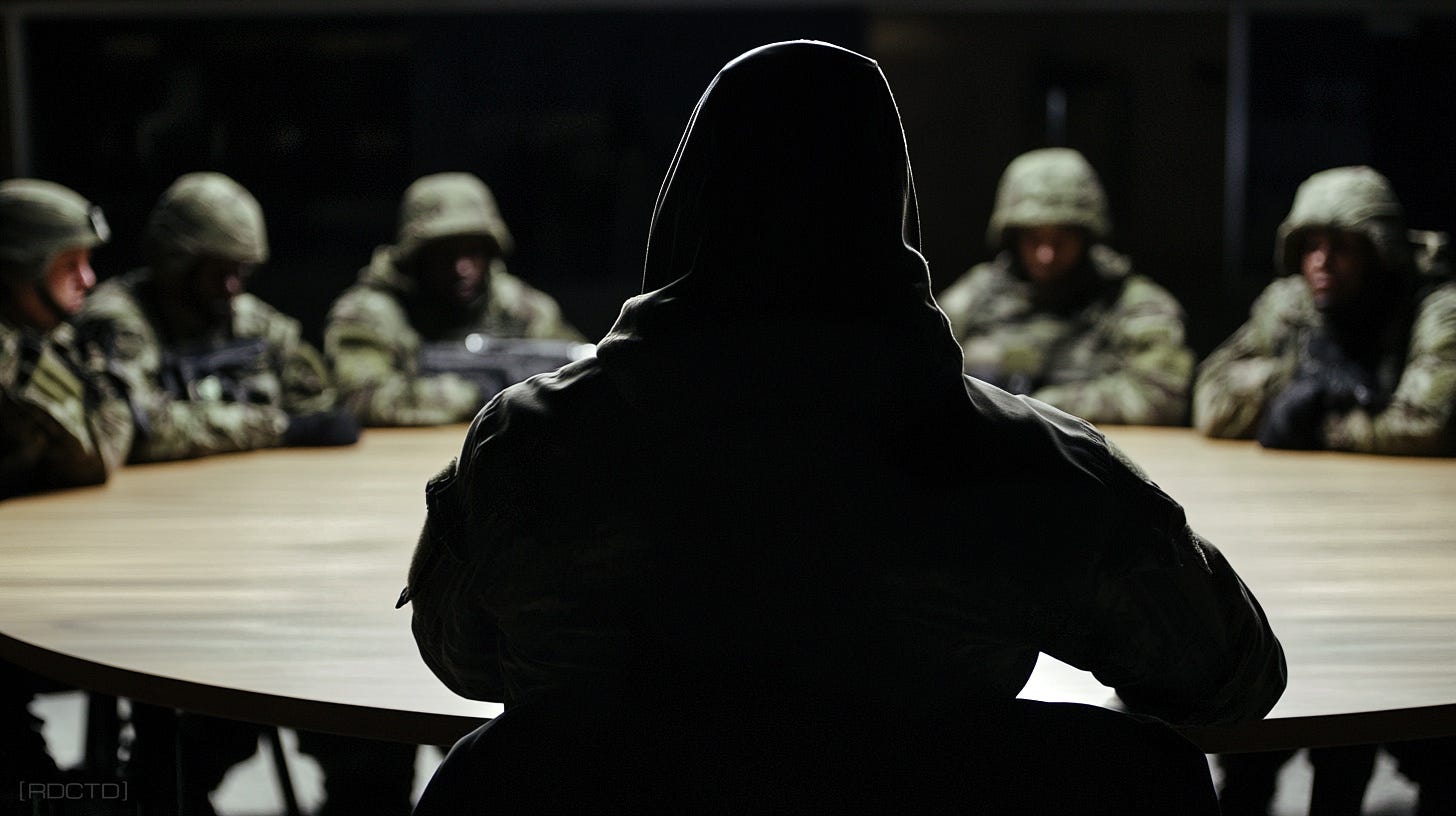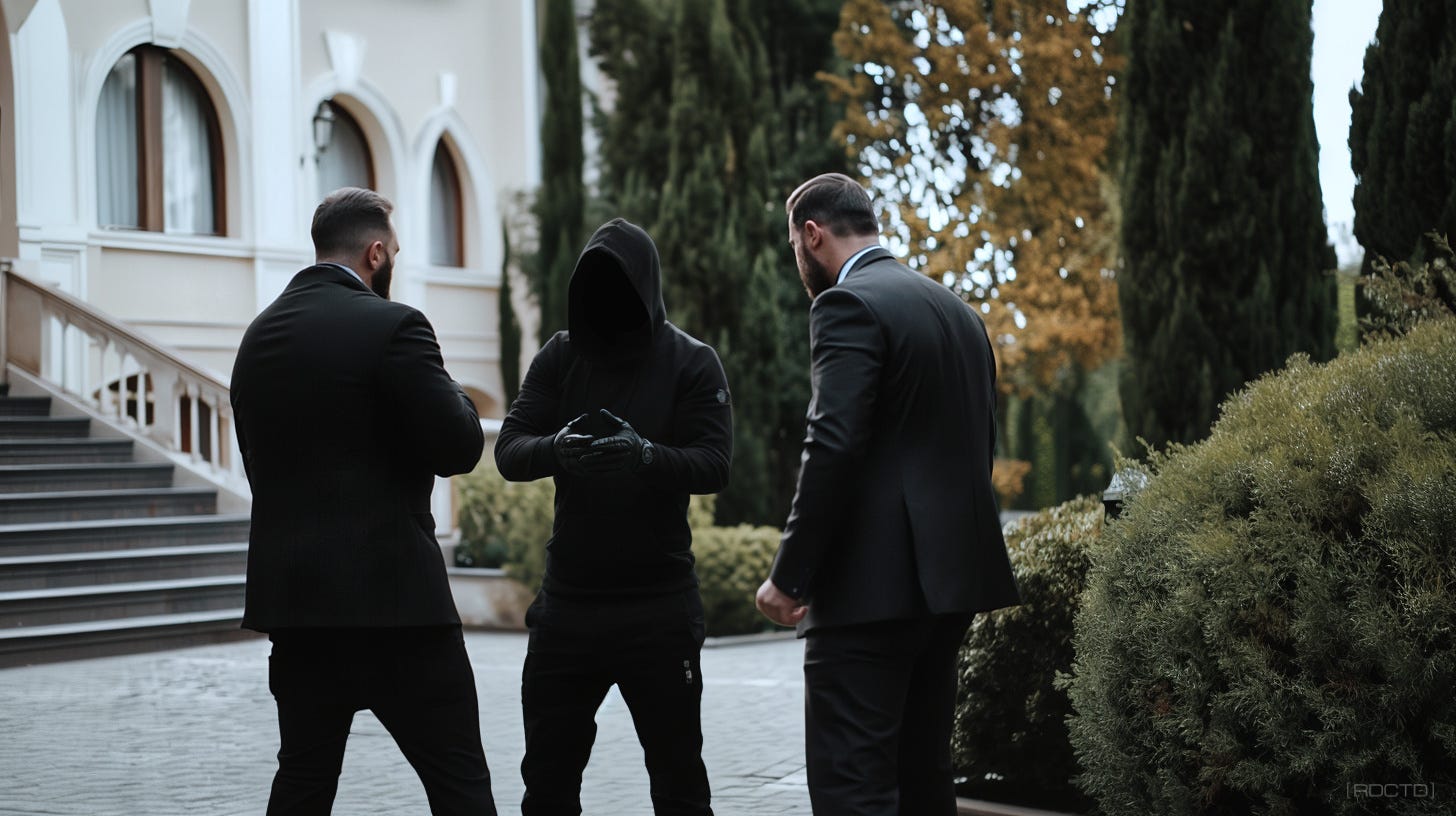How to 'Read Between The Lines' in any Situation
Deception Lives in the Details They Skip
Anyone can listen. But if you want to influence, outmaneuver, or survive high-stakes situations, you’ve gotta catch what’s hiding between the words.
In the field, this can mean you spotting a setup and saving you from walking into a trap. Back home, it helps you understand motives, manipulate outcomes, or predict someone’s next move.
This is the kind of tradecraft operatives rely on and it works just as well in boardrooms, the streets, or at parties. Reading between the lines is catching what’s not being said outright. It’s the skill of picking up on subtle cues such as tone, body language, word choice, or what’s intentionally left out.
The strategic purpose? Leverage. Doesn’t matter if you’re sitting across from a foreign asset, dealing with your frenemy, or your boss at the agency, being able to decode what they’re really saying gives you control.
Reading Between The Lines Method:
[First, pay attention to what’s missing]
People rarely tell you the whole truth, especially when they’ve got skin in the game. If someone’s dodging a simple question or skipping over a detail, it usually means that piece is sensitive or incriminating. An operative gets good at asking follow-ups that seem harmless but poke at the soft spots. Silence is just as loud as shouting if you know where to listen.
If someone keeps circling back to the same safe topic, they’re likely trying to steer you away from something. That’s your cue to redirect (subtly) and see where the discomfort lies.
Gaps in timelines are gold. If someone rushes past a chunk of time in a story, pause there. Ask for clarification casually. The truth is usually buried in the missing hours.
Repetition is a red flag. When someone repeats the same phrase (especially when it’s meant to reassure) it’s often a cover. “Like I said, it wasn’t a big deal” might mean it was a big deal.
The key is listening with intent, not just hearing what they say, but what they don’t. You’ve got to treat a conversation like a map with missing roads. The more you notice what they skipped, the closer you get to the truth. Operatives don’t just collect facts, they fill in the blanks. That’s where the real intel lives.
[Second, analyze tone and delivery]
Two people can say the exact same words and mean entirely different things. That’s where tradecraft kicks in; you’ve got to train your ear to hear hesitation, overcompensation, or false confidence. It’s like sniffing out lies at a checkpoint: they don’t always break down in tears, but their story doesn’t quite sit right. That edge in their voice, the nervous chuckle, those are the tells.
A sudden shift in tone, like someone going from calm to defensive mid-sentence, isn’t random. It usually flares up when they feel cornered or exposed. That’s when you press, gently.
Overexplaining or speaking in circles often masks a lie. People who are telling the truth don’t feel the need to justify every detail. Liars tend to pile on “evidence” to sound believable.
Listen for filler words or sudden formality. When someone who normally talks loose starts saying things like “To be perfectly honest with you…” they’re likely anything but.
Tone reveals what the words try to hide. Operatives don’t just hear noise, they decode intent. The rhythm of a voice can tell you more than a transcript ever could. Get good at picking up the shift beneath the surface, and you’ll catch the lie before they even know they told it.
[Third, body language is a goldmine]
Watch the eyes, hands, shoulders. People leak emotion through movement. Crossed arms, twitching feet, glancing to the exit, those signs tell you someone’s uncomfortable, maybe even hiding something. In an interrogation room or a busy bar, reading body language is one of the oldest tools in the kit. Always let their physical reaction guide your next step.
Eye contact is a big tell. Too little and they might be hiding something. Too much, like they’re forcing it, can be a mask for guilt or overcompensation. Real eye contact flows naturally.
When words and gestures don’t match, believe the body. If someone says they’re relaxed but their fists are clenched or their shoulders are tight, trust the tension. The body doesn’t lie.
Sudden grooming gestures; adjusting a watch, fixing hair, tugging at clothes, can be subconscious stress responses. It’s their body trying to manage anxiety or dodge a lie.
Body language gives you a second track of intel, running under the surface. Words are filtered and rehearsed, movements aren’t. As an operative, you watch what people do more than what they say. The moment their body betrays the mask, you’ve got your in.
[Fourth, context is king]
You’ve gotta know the background; what’s at stake, who stands to gain, who’s bluffing. When someone says, “We’re considering all our options,” in a negotiation, that might mean they’re desperate, or just stalling. Without context, the words mean nothing. Operatives always research their targets so they can spot inconsistencies and patterns that give the game away.
Know their pressure points. If someone just took a financial hit or got passed over for a promotion, their behavior will shift, maybe subtly, but it’ll show. That’s leverage if you’ve done your homework.
Understand the environment. A threat said in a private meeting carries different weight than one said in front of an audience. The setting always colors the meaning.
Track timelines and patterns. If someone usually responds fast but suddenly starts delaying, something changed. Don’t ignore those shifts, they’re rarely random.
Context turns random chatter into actionable intel. Operatives never walk in blind. Every move, every phrase, every delay makes more sense when you know the lay of the land. You’re not just listening, you’re matching their words against what should be happening. That’s how you catch the cracks in their story before they even realize they slipped.
[Lastly, trust your gut, but verify]
Intuition matters, it’s built on experience. But don’t just run with a hunch, dig deeper. Cross-check with signals, behavior, and third-party sources. An operative never bets the mission on a vibe alone. You read between the lines to confirm what your instincts are telling you, and then use that to steer the situation your way.
If your gut flags something off, treat it as a lead, not a conclusion. Ask quiet questions, shift the angle of approach, and see if the unease holds up under scrutiny.
Look for confirmation from at least two other sources, body language, inconsistencies in their story, or external intel. One red flag is curiosity; three is a pattern.
Don’t confuse fear with instinct. If you’re tense, tired, or emotionally involved, your radar can get scrambled. Stay sharp and detach, intuition only works when your head’s clear.
An operative’s instinct is a tool, not a compass. It points you in the right direction, but it’s your job to map the terrain. When your gut and the evidence line up, that’s when you move. Tradecraft isn’t just about spotting what others miss, it’s about knowing when to trust your read, and when to dig until the truth has nowhere left to hide.
Examples of Reading Between The Lines:
[Civilian]
You’re at the table with a seller’s real estate agent, and they keep saying, “The property’s had a lot of interest.” But they can’t name any other serious buyers, and they dodge specifics on recent offers. That’s the gap, what’s missing.
You catch the agent’s tone tightening whenever you mention contingencies. Their smile’s steady, but their foot’s tapping fast. You notice they look away when you bring up closing dates, probably under pressure to sell fast. You dig into local listings and learn the property’s been sitting longer than average.
Your gut says they’re bluffing, and the cross-checked signals confirm it. So you hold your position, push for closing credits, and get the better end of the deal.
[Operative]
You’re casing a facility in Casablanca. A sleepy night guard’s smoking out back, and you roll up casual with small talk. When you ask how strict the camera coverage is, he shrugs and says, “They watch the front mostly.” Too fast. No hesitation. Rehearsed. That’s your tone tell.
He lights another cigarette, but his hand trembles slightly when you mention the third-floor labs, bingo. You follow up with an innocent comment about how boring quiet posts must be, and he jokes, “Not my problem as long as I stay outta trouble.” Context: he’s hinting that the back entrance isn’t his concern. You cross-reference this with your earlier surveillance footage and confirm it’s under-monitored.
Your gut said he was itching to talk, you just gave him the space to do it, and now you’ve got your in.
[Police Officer]
You roll up on a domestic call. Guy’s pacing in the driveway, shirtless, yelling that everything’s fine. His words say calm, but his clenched fists and darting eyes tell a different story. His tone’s flat, but there’s tension behind it, overcompensation.
You ask about his wife inside, and he says, “She’s sleeping. Leave it alone.” That dodge is the missing piece. You spot a bruise on his forearm, he’s been in a struggle. Context from dispatch says this address has a history.
Your gut says it’s about to pop off, but instead of pressing, you soften your voice, talk about how tough relationships get, and slowly close distance while signaling your partner to flank. You trusted your read, verified the danger signs, and shifted the energy before it exploded.
Gaps in the story are entry points. You don’t knock, you slip in.




